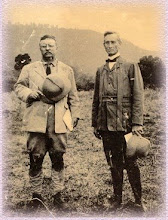Several years ago while on a year and a half furlough, the door opened for me to audit a series of classes in a local seminary. I had all the benefits of any other student with two exceptions: I only paid $25 dollars per class, and would receive no diploma. This sounded good to me, for I have never found my security in papers or the praise of men. My time there was also a great eye-opener to the background and desires of those who were at the time studying to be America’s new up and coming pastors, church educators, and missionaries.
One morning in my New Testament class the professor asked how many of us had read the entire Bible. The response came as a great surprise to my then naïve heart. Less than a third of the students raised their hands. Here was a room full of people studying for their Masters of Divinity. Over half were already either serving as pastors or working on church staffs somewhere…yet the majority had never read their Bible. How did they even know that seminary was where they needed to be? This also meant that when a professor gave his interpretation of a passage of Scripture, they at first would have to just take his word for it till they could later study it out for themselves. But even then the professor’s word (teaching) might shape how the student read the Word and interpreted it rather than being the other way around.
From that morning on I began to understand better the struggle which is now taking place in the churches in America and on the mission field. People who know the Bible (and the Gospels there in) well can more easily conceive of following a flesh-and-blood, risen Jesus than can those who concentrate on the more abstract and theologically conceived Christ. Unfortunately, the average student with only a Sunday-school background enters college at best, with a sixth grader’s knowledge of the life of Jesus – a sprinkling of isolated miracle stories. But a systematic understanding of Jesus’ earthly life makes New Testament theology more practical, and having read the Old Testament will aid one with a deeper understanding of the context of what unfolds in the New.
This is why I have greatly encouraged those in each group I have discipled to read through the Bible (beginning to end) for themselves. Taking up just three chapters a day will carry one through the whole Bible in just a little over a year. And don’t just stop with one read through. Every time I reread a book out of the Scriptures, I find that I understand it a little better and store more of it away into my heart and mind. Another recommendation to a new disciple is to master one of the synoptic Gospels (Matthew, Mark, or Luke). Some may choose Mark because of it being a shorter book; however, I often encourage people towards Luke so their flow into the book of Acts (both being written by the same author) might have a smooth transition.
When you have grasped the main outline of one of the Gospels and know the highlights of Jesus’ life, you will begin to see the eternal significance of particular events in His life because you see them in their proper historical context and progression to a climax. Combining this with your knowledge of the Old Testament and other Gospels (for instance, the one of John), you will have a far richer understanding of who Jesus is. Not only is such an understanding of Jesus’ person and His mission essential to your discipleship, it is indispensable to your future ministry!

No comments:
Post a Comment